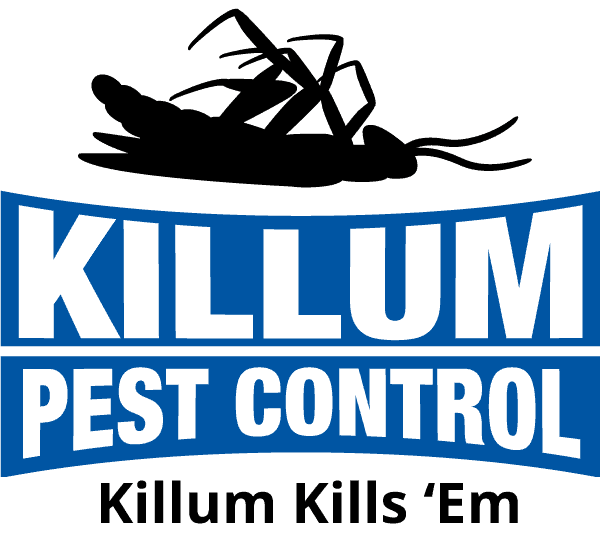Running a restaurant in Texas comes with its unique challenges, one of the biggest being the threat of rodents. These unwanted guests can cause significant damage to your property, contaminate food, and create an unsanitary environment. For restaurant owners, rodent infestations can lead to health code violations, lost revenue, and a tarnished reputation. Luckily, there are simple steps you can take to prevent these pests from becoming a problem in your establishment.
In this article, we’ll discuss the specific threats rodents pose to Texas restaurants, highlight critical areas to focus on for prevention and provide practical steps to keep your restaurant rodent-free. We’ll also touch on when it might be necessary to call in the professionals for help. Protecting your restaurant from rodents is not just about cleanliness; it’s about maintaining a healthy, welcoming environment for your customers and staff.
Understanding the Rodent Threat in Texas Restaurants
Rodents are a serious threat to Texas restaurants for several reasons. They can damage property, spread diseases, and create an unsanitary environment. Common rodents like rats and mice are attracted to food and shelter, making restaurants prime targets.
Rodents can chew through anything, including wood, plastic, and wires. This can lead to electrical problems, damaged equipment, and structural issues. They also leave droppings and urine everywhere they go, contaminating food and surfaces. This can result in serious health risks, as rodents are known to carry diseases like salmonella and hantavirus.
Rodent infestations can also lead to health code violations. No restaurant owner wants to face fines or the possibility of being shut down due to a pest problem. Even worse, seeing a rodent can scare away customers and damage your restaurant’s reputation. Understanding the threat they pose is the first step in effectively preventing them.
Key Areas to Focus on for Rodent Prevention
Preventing rodents in your Texas restaurant starts with identifying key areas where they will likely enter and thrive. Here are the main areas to focus on:
1. Entry Points:
Rodents can squeeze through tiny gaps, cracks, and holes. Inspect your restaurant’s exterior and seal any openings more prominent than a quarter-inch. Pay close attention to areas around doors, windows, and utility lines. Use weather stripping and door sweeps to block entry points.
2. Food Storage and Handling:
Rodents are always on the hunt for food. Ensure food items are stored in airtight containers and never left out overnight. Keep your pantry and storage areas clean and free from crumbs and spills. Regularly rotate stock to prevent old food from attracting pests.
3. Garbage Management:
Proper garbage disposal is crucial. Ensure all trash cans have tight-fitting lids and are emptied regularly. Keep dumpsters away from the building and clean them frequently. Overflowing bins are a beacon for hungry rodents.
4. Water Sources and Leaks:
Rodents need water to survive, so promptly fix leaks or standing water issues. Check under sinks, dishwashers, and near refrigeration units for potential water sources. Use a dehumidifier in damp areas to reduce moisture levels.
5. Indoor Cleanliness:
A clean restaurant is less appealing to rodents. Sweep and mop floors regularly, clean up spills immediately, and maintain good sanitation practices. Also, remember hard-to-reach areas like behind appliances and under counters.
Focusing on these critical areas can significantly reduce the risk of a rodent infestation in your restaurant. Regular inspections and maintenance are crucial to keeping these unwelcome guests at bay.
Simple and Effective Rodent Prevention Steps
Preventing rodents in your restaurant doesn’t have to be complicated. Here are some simple and practical steps you can take:
1. Regular Cleaning:
Maintain a strict cleaning schedule. Sweep and mop floors daily, wipe down counters, and regularly clean under and behind appliances. Ensure no food particles are left behind that could attract rodents.
2. Secure Food Storage:
Store food in rodent-proof containers. Glass, metal, or heavy-duty plastic containers with tight-fitting lids work best. Keep storage areas tidy and organized, and clean up spills immediately.
3. Waste Management:
Take out the trash regularly and ensure that all bins have tight-fitting lids. Clean and disinfect waste bins frequently to prevent odors that attract rodents. Position dumpsters away from entrances and ensure they are kept clean and secure.
4. Inspect and Seal Entry Points:
Conduct regular inspections of your restaurant’s exterior. Seal any gaps, cracks, or holes in walls, windows, and doors. Use steel wool or caulk to fill these spaces, as rodents can easily chew through softer materials.
5. Maintain Landscaping:
Trim back trees, shrubs, and any vegetation around your building. Overgrown landscaping can provide shelter and easy access for rodents trying to get inside. Keep grass short and eliminate any yard debris or clutter.
By following these steps, you can create an unfriendly environment for rodents. Consistency is vital, and regular maintenance will help keep your restaurant rodent-free.
When to Call Professional Pest Control Services
You might still encounter a rodent problem even with the best prevention practices. Here are a few signs that it’s time to call in professional pest control services:
1. Persistent Rodent Activity:
If you continue to see signs of rodents despite your efforts, it’s time to seek professional help. Droppings, gnaw marks, or sightings of rodents indicate an ongoing problem that needs expert attention.
2. Large Infestations:
Handling a few rodents might be manageable, but a large infestation requires professional intervention. Experts can identify the extent of the infestation and implement effective measures to eliminate it.
3. Health and Safety Concerns:
If rodents are affecting the safety and sanitation of your restaurant, don’t take chances. Professionals have the tools and knowledge to handle infestations safely and efficiently, ensuring your restaurant meets health codes and standards.
4. Preventive Maintenance:
Sometimes, it’s best to bring in professionals to prevent infestations before they start. Regular inspections and treatments from a pest control service can help keep your restaurant rodent-free year-round.
Professional pest control services provide peace of mind. They have the expertise to deal with rodents quickly and can offer long-term solutions to keep your restaurant safe.
Conclusion
Maintaining a rodent-free restaurant in Texas requires diligence and proactive measures. Understanding the specific threats that rodents pose and focusing on critical areas for prevention can significantly reduce the risk of an infestation. Simple steps like regular cleaning, proper food storage, and sealing entry points effectively keep rodents at bay.
However, there may be times when professional pest control services are needed. Persistent rodent activity, large infestations, and the need for preventive maintenance are all signs that it’s time to call in the experts. Protecting your restaurant from rodents is not just about cleanliness; it’s about ensuring a safe and welcoming environment for your customers and staff.
If you’re struggling with a rodent problem or want to prevent one before it starts, contact Killum Pest Control, Inc. for commercial pest control. Our team of professionals is ready to help keep your restaurant rodent-free. Call us today to schedule an inspection and take the first step towards a pest-free restaurant.





